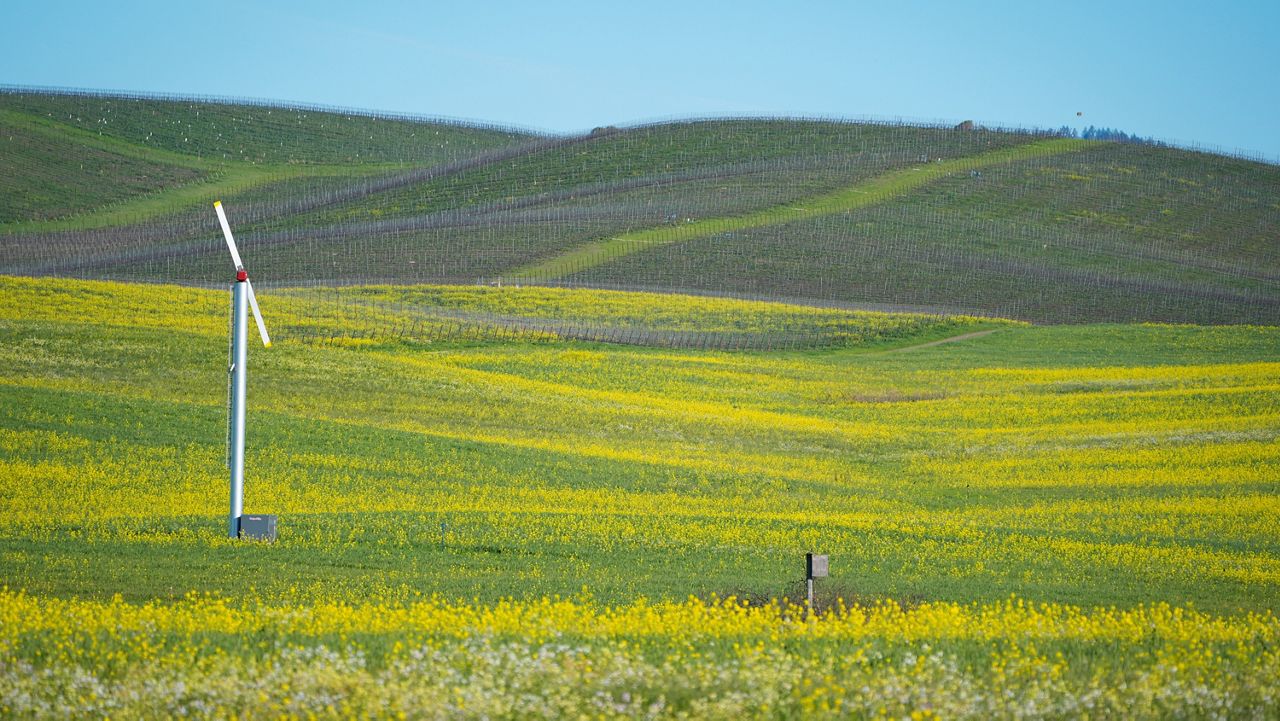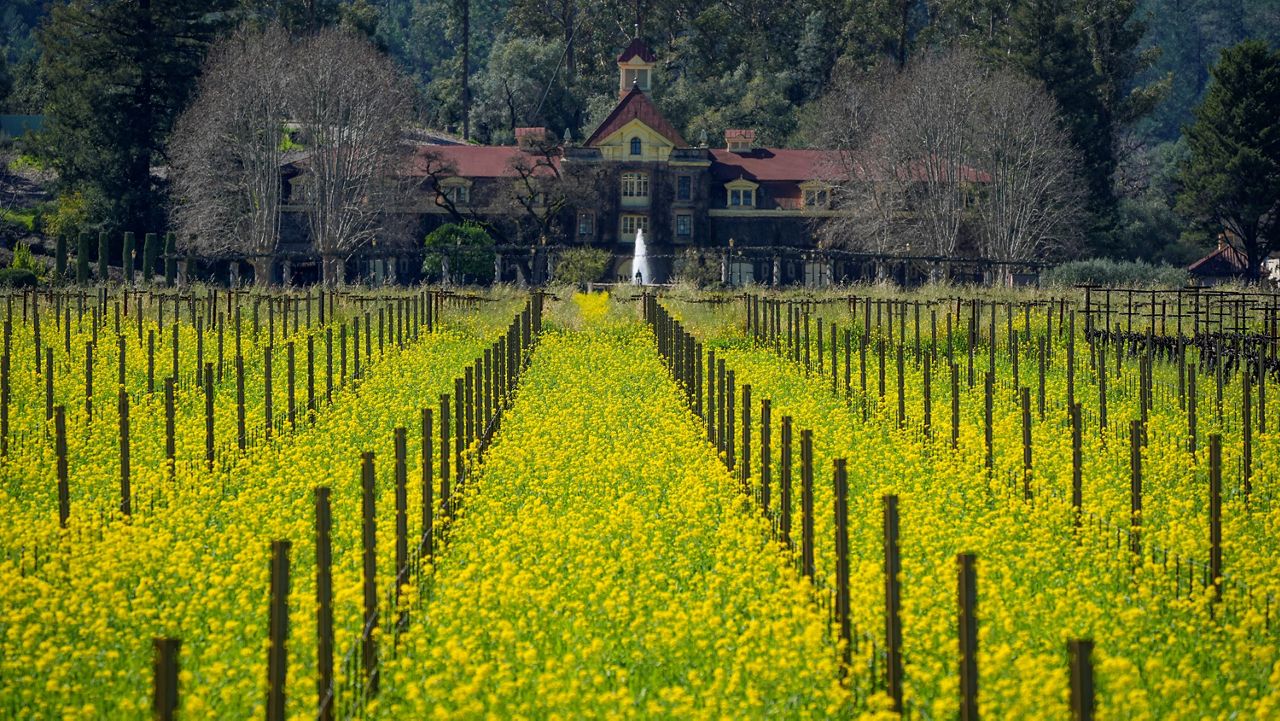NAPA COUNTY, Calif. — Brilliant yellow and gold mustard is carpeting Northern California's wine country, signaling the start of spring and the celebration of all flavors sharp and mustardy.
Mustard isn't just pretty to look at. The plants, which bloom through March, are doing hard work to protect world-famous vineyards in Napa and Sonoma counties.
Mustard contains high levels of biofumigants, which suppresses the growth of microscopic worms that can damage vines, according to Sonoma County's tourism website. It also provides nutrients to emerging grape plants and keeps hillside soil in place to help fight erosion.
Not everyone is a fan of mustard, however.
The plants, which are not native to California, grow so well and so aggressively that they smother native flora such as blue lupine and poppies. Some in the state are ripping up mustard plants and turning them into paper, dyes, pesto and, of course, mustard, the condiment.

Additionally, as temperatures warm, the mustard starts to die, making it tinder for wildfires in a state that has been ravaged by blazes. Its stalks can act as fire ladders, causing flames to climb.
“They are these nonnative species that have an invasive nature, and they encroach into wild lands and they have actually a detrimental effect to wild ecosystems,” said Naomi Fraga, director of conservation programs at the California Botanic Garden.
Winemakers have made the mustard plant work for them, said Megan Kathleen Bartlett, assistant professor of plant biology at the viticulture and enology department of the University of California, Davis.
“The mustard compounds are a natural deterrent to nematodes, and the taproots can help break up clayey soils,” she said in an email. ““Mowing it under every year also helps keep it from becoming too invasive.”
Restaurants and wineries offer dishes and tastings to celebrate the season with artisan mustards, mustard greens, mustard glazes and mustard sauce.



